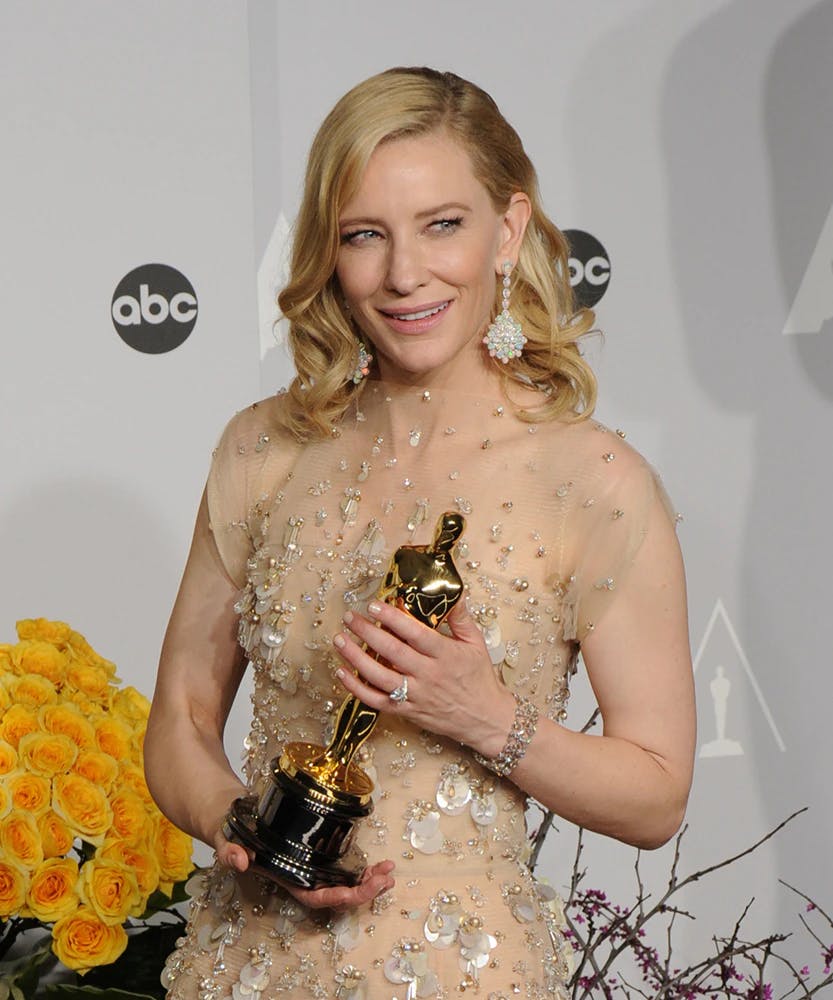We Need to Keep Gendered Award Categories
It’s been going on for a while now - some people have been calling for doing away with the best actor/actress awards in the Oscars. But is that really such a good idea?

Are gender-separated awards something prejudiced? Or are they opportunities for women that should be preserved?
It Gives More Chances for Women To Be Recognized.
Doing away with the gendered award categories would be a major blow to the opportunities female actresses would get for recognition. Five female best actress nominees and another five supporting actresses nominees: that’s ten actresses getting recognition. Shouldn’t we be ecstatic that we are preserving spots made to glorify our female artists? I mean, the public seems to be outraged over women getting snubbed in their respective nominations, so it should only make sense that an award that only women can compete for (and therefore, win) would be great. Or at least you’d think.
Looking to get rid of the two categories that guarantee female winners seems counterproductive.
It seems to be getting to the point where consistency is almost too much to ask for. Looking to get rid of the two categories that guarantee female winners seems counterproductive. The public demands in all capslock tweets for more female representation in the Oscars, but in the same breath, claims how archaic and divisive the actor/actress categories are. If gender really wasn’t important, then why are we complaining that female directors don’t get their shine?
It's Not As ‘Absurd’ of a Division As You Might Think...
In a 2019 New York Times article, journalist Cara Buckley quotes nonbinary actor Asia Kate Dillon, who wrote an open letter to the Television Academy:
“If we separated categories by the colors of eyes, hair or skin, people would go, ‘This is unacceptable,’” said Dillon. “That’s how I feel about gender categories. At this point, it feels unacceptable and unnecessary and archaic.”
The division by gender allows for a wider range of different characters to admire and to award.
Dillon is correct about the absurdity of dividing the categories based on physical attributes. Because physical attributes don’t say anything about the actor’s or actress’ performance and art. The division by gender allows for a wider range of different characters to admire and to award. Do away with the gendered division, and we just might see a decline in female actresses being nominated for “Best Performance.”
Which leads me to...
Roles are Archetypal.
There’s something that we often overlook when taking into account why splitting the genders for this award is a good thing. Yes, the obvious reasons like women getting the shine their artistic craft deserves jump to mind, but what about the representation of the feminine experience? Most characters say something about what it means to be human. And more specifically, for us women, what the arc of a woman is like. We want womanhood representation.
The best way to represent the female experience on a wide scale is through archetypes.
How men and women seek what they want is different, and that is reflected in the characters we project ourselves in.
Men and women have very different walks of life. Because of this, it’s reflected in the art we enjoy. How men and women seek what they want is different, and that is reflected in the characters we project ourselves in. That’s why archetypes exist: to relate to a woman’s experience on the most general level.
You’ve seen plenty of archetypes in play even if you haven’t recognized them at work: the maiden breaking out of her naivete, the dark seductress, the nurturing but fiercely protective mother, the wise witch, the Queen. These are characters women usually champion. Not men. All these archetypes speak specifically to a point of journey throughout all women's lives. They speak specifically to the feminine experience.
And because of that, they can’t compete with male characters, who represent a whole new perspective and walk of life. Why should Saorise Ronan’s Josaphine compete with, say, Joaquin Phoenix’s Joker? Two characters, both superb in their respective rights, but which appeal to two completely different audiences. Yes, there are some male characters who are made to appeal to the opposite sex. Sure, not every character is made to appeal to the gender they were assigned, but plenty do. And the ones that do, carve for themselves a comfortable space in pop-culture that will be remembered.
All these archetypes speak specifically to a point of journey throughout all women's lives.
Conclusion
People are already complaining that too many nominees are men, so why are they pushing to eliminate categories that guarantee a female winner? Why not give the female experience the respect it deserves by showcasing more female roles and awarding those actresses who brought them to life? Asking for an erasure of these awards greatly limits female actresses and female arcs.